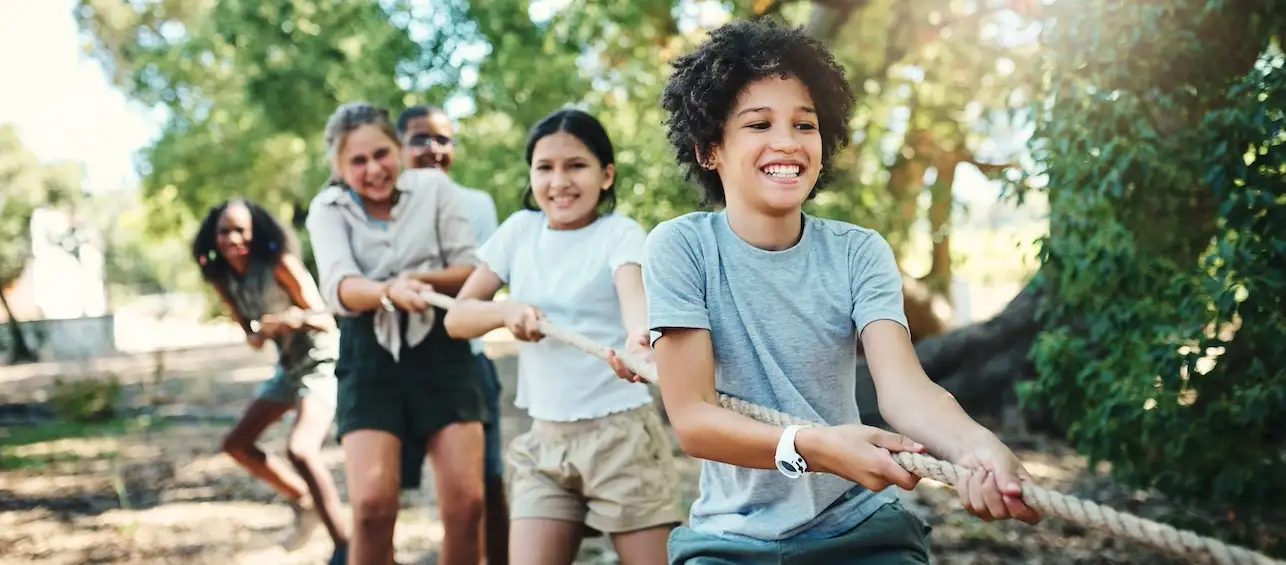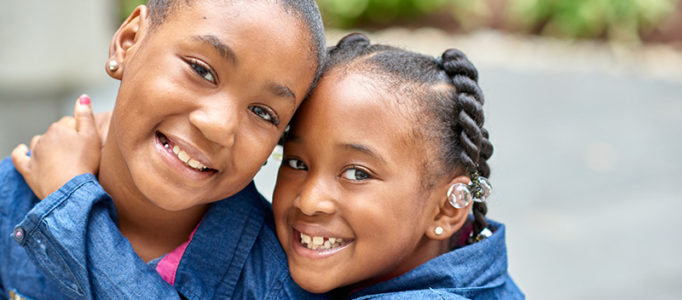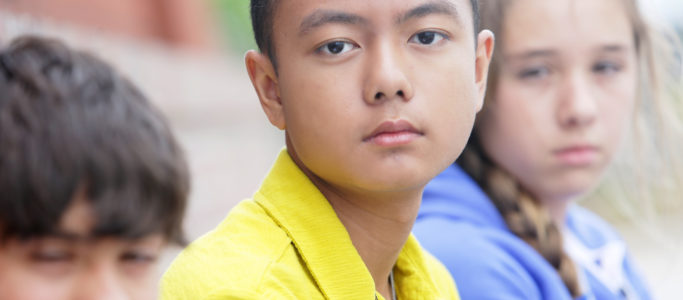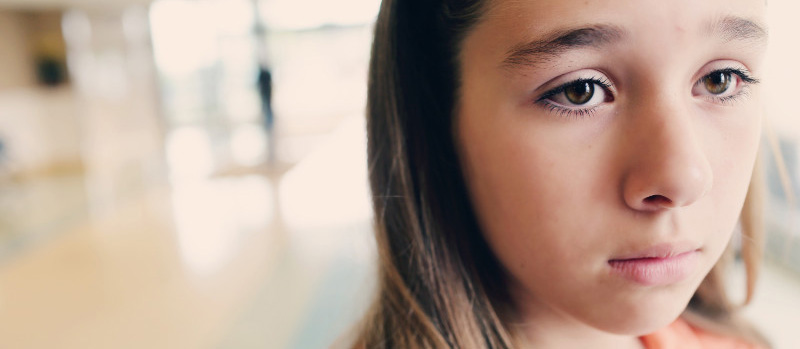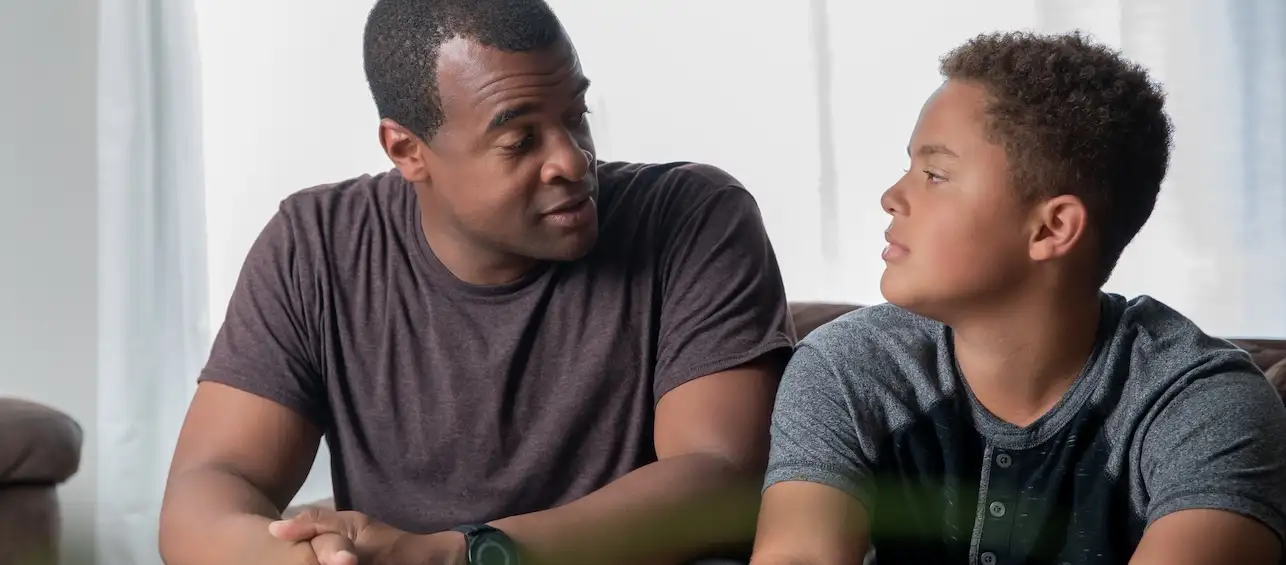Summer is just ahead of us, and for many kids, that means going to a sleepaway camp: Swimming, fishing, campfires, outdoor games and so much more!
For some kids, this is exciting. For others, it can be worrisome, especially if it’s their first time.
If your child is anxious about going off to summer camp, it’s something that you can work on with them.
What Are Kids Anxious About?
Kids’ worries about summer camp vary. The reasons I’ve heard most often include:
- Not being able to sleep away from home
- Separation anxiety; being away from their home/parents/family
- Something bad happening to their parents or to them while they’re away
- Meeting new people
- Not knowing what it will be like; fear of the unknown
10 Ways to Help Your Child Get Ready for Sleepaway Camp
Using these tips to prepare kids for what to expect at summer camp can help lower anxiety both before leaving and while they’re away:
1. Talk with them about what camp will be like
- Talk about where your child will sleep, what their meals will be like, and the types of activities they’ll do.
- See if the camp has a description of activities or a map of the campgrounds on their website.
- Look at pictures together on the camp’s social media accounts.
- Be available to answer questions from your child. If you don’t know the answer, set aside time to look it up and come back to it later.
- Use positive statements like, “I’ve heard it’s so fun there!”
2. Talk with them about their worries
- It’s OK to ask your child what they’re nervous about. Sometimes kids just feel nervous, and they don’t know why. Assure them it’s OK to have those feelings. It can also help to share a time when you’ve been nervous as an adult and how you handled it.
- If it’s a specific issue they’re worried about, once you know what it is, you can problem solve. If it’s a worry about, say, not knowing where the bathrooms are, you can show them on a map, point them out when you drop them off, or ask the camp staff when you arrive.
- Try these questions: What is the worst that could happen? What is the best that could happen? What is most likely to happen? Often the worst that could happen is not the most likely and can help them see the reality of the situation.
3. Visit camp ahead of time if possible
If the camp is nearby, see if it’s possible to arrange a visit beforehand. When kids can see what it’s like and get used to it in advance, it can help reduce those nervous jitters.
4. Talk with camp staff, other campers, or parents of past campers
This can help your child to better understand what will happen at camp and experiences they might have, and can give them something to look forward to.
5. Be confident
Let your child know that you’re confident they can have a good time. Build them up with a lot of positive talk. Tell them what they’re good at that will help them enjoy camp: Making friends, being outdoors, experiencing new things, trying new challenges, etc.
Avoid talking about any worries you have, because kids can pick up on that and become more worried themselves.
6. Discuss what will happen at drop-off
Learn from your child’s camp how the drop-off procedure goes and share that with your child. When you arrive for drop-off, keep your goodbyes short and avoid becoming emotional.
7. Consider a pre-sleepover
If your child has not had many (or any) sleepovers before, it can help to schedule one or more in advance of them going to camp.
Note that I’ve worked with patients who, even if they don’t enjoy sleepovers much, have gone to sleepaway camp and done just fine. So if your child doesn’t like sleeping over with friends or relatives, that doesn’t necessarily mean they won’t enjoy sleepaway camp.
8. Run through the bedtime routine
If the camp’s sleeping arrangements are causing unease, talk through what bedtime will be like. Go over the similarities to their bedtime routine at home: Getting pajamas on, brushing teeth, having a stuffed animal or special object in bed with them.
9. Find a point person for them
At drop-off, talk to the camp staff about who your child can go to if they have a question or are worried about something. Introduce that person to your child before you leave.
If you feel it’s necessary, let the staff member know about your child’s worries. If your child is with you during this conversation, this can sound like, “___ is a bit nervous about ___, but I know they’re going to have a great time here with you this week!”
10. Teach coping skills
Using tools like these while at summer camp can help kids face their fears while away from home:
- Deep breathing at bedtime to help them relax
- Guided imagery, where kids imagine someplace enjoyable to them that is calming
- Practice asking for help ahead of time; walk them through how to word a question as this doesn’t always come naturally for kids: “I lost my water bottle. Can you please help me find it?”
- Positive self-talk; teach them a phrase they can use when they’re feeling uncomfortable: “I’m safe and I’ll be OK.”
Going to sleepaway camp can be life-changing for a lot of kids. If your child is nervous and not ready to commit, don’t rule it out entirely. If they aren’t ready this summer, they might be next year. I’ve had some very anxious kids come to me who have worked through their anxiety and have gone on to have successful summer camp experiences.

